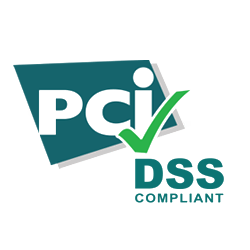Chargebacks are a form of consumer protection for credit card holders, introduced as part of The Fair Credit Billing Act of 1974.
Essentially, a chargeback voids a card transaction, withdrawing funds that were previously deposited into the merchant’s bank account and applying a credit to the cardholder. Chargebacks are normally used to dispute a card transaction and secure a refund for the cardholder.
The cardholder, rather than contacting the business for a refund, may go above the merchant’s head and asks the bank to forcibly remove funds from the business’s bank account. If the bank feels the cardholder’s request is valid, the funds will be removed from the merchant’s account and returned to the cardholder.
You can read more about the process and how they effect your business here.
What is Friendly Fraud?
Despite chargebacks being a protection tool for cardholders during disputes with merchants who have failed to deliver the expected service, you should also recognise that criminal fraud is ever growing in today’s society. According to recent research, nearly half of all chargebacks are supposedly in response to unauthorised (fraudulent) transactions.
Many cardholders are victims to unauthorised transactions have been made on their account. Filing chargebacks on fraudulent card transactions can help innocent victims recoup their money. From a merchants perspective, they should be aware of the growing threat of friendly fraud
'Friendly fraud', which is sometimes referred to as 'chargeback fraud' is when consumers abuse the chargeback process, claiming that legitimate purchases were unauthorised or fraudulent. This is essentially stealing, which is also known as 'cyber-shoplifting'.
Examples of chargeback abuse may be because:
- The cardholder wants to make something for free and files a chargeback request claiming that they did not authorise a legitimate purchase, when in truth, they have already obtained the goods or services.
- The cardholder has 'buyer’s remorse' and regrets making the transaction. This can sometimes relate to those late night, alcohol induced purchases!
- A family member made the purchase but the cardholder doesn’t recognise or want to pay the bill. We have seen this with children purchasing things on their parents device.
- The cardholder didn’t digest the merchants terms and conditions or returns/refund policy and the time limit may have expired or seems complicated.
- The cardholder uses a chargeback to avoid a restocking or handling fee.
- The cardholder did not understand the delivery timescales/schedule.
- The cardholder forgot about or did not recognise the transaction. This can often be caused if the merchants official business name, rather than their trading name, appears on the cardholders statement.
What are the consequences for the Cardholder and the Business?
Whilst the individual cardholder might think that filing odd 'friendly fraud' is 'no big deal' or victimless, it is essentially stealing. A crime.
It can also have significant implications for both the cardholder and the business.
Over £570m worth of fraud was committed in the UK alone in 2020
From the cardholders perspective:
- If the cardholder is caught trying to commit friendly fraud, then their account could be closed and their credit-rating record affected.
- Cardholders who try to commit friendly fraud on a regular basis, might not be believed it future genuine cases, where the consumer protection is required.
- Filing for a chargeback, can involve a long, lengthy process to have the funds reimbursed. It is always better to try and obtain a credit or refund from the merchant.
- Chargebacks can be an expensive process for a business, who may increase their prices to try and compensate their losses.
- If a merchant can evidence that they cardholder is trying to commit friendly fraud, then the cardholder may pick up additional fees associated with the chargeback claim.
From the merchant perspective:
- If a cardholder has obtained the goods or services fraudulently, then the merchant may have also lost goods/products as well as the monetary revenue.
- Each time a merchant receives a chargeback, they are hit with additional administrative fees.
- If a merchant receives an excessive amount of chargebacks, then they can be hit with additional fines, or even have their merchant account frozen or revoked.
- This can force the merchant to obtain a 'high risk' merchant account, which can include higher fees and often longer settlement times or even revenue being withheld in reserves.
- If a merchant does lose their merchant account, they may struggle to find another acquiring partner for a long period of time.
- Even if the merchant does 'win' the chargeback dispute, a 'black mark' could still appears on their merchant account record.
How does our innovation help combat chargebacks?
Our cloud-based technology does not require any additional hardware or amendments to existing telephony ornetwork set up and is
Acquirer and
Payment gateway agnostic. Totally eliminating the need for capital expenditure, SOTpay can support businesses of all shapes and sizes in any sector.
SOTpay eliminates the risk of fraud related chargebacks for businesses, by authenticating MOTO and Omni channel CNP transactions and processes the payment in a PCI compliant manner, converting a risky ‘non-secure’ transaction into a ‘secure, authenticated, compliant’transaction in the eyes of the acquiring partner, the merchant can see significant savings in theirMerchant Service Charge's. We have seen businesses save in excess of £40,000 per annum,following the deployment of SOTpay.
SOTpay enables you to send out an electronic payment request in real time, via email, SMS, web chat or electronic invoices.
The flexibility of the SOTpay technology enables the merchant to accept secure and compliant transactions across numerous channels, boosting business by allowing cardholders to complete transactions in their desired channel of engagement. For example, if someone is engaging with the business on Facebook, SOTpay allows the business to take payment within the Facebook Messenger environment.
By preventing cardholder data in its entirety from entering the merchant environment, SOTpay makes achieving andmaintaining PCI DSS compliance easier and more manageable for your business. With liability for fraud related chargebacks eliminated the merchant can also deliver to an alternative delivery address, instead of just to the registered cardholder’s address.
As a disruptive payment technology, the PCI SSC updated their Global ‘Protecting Telephone Payments’ guidelines to include our innovative approach, which gave us tremendous credibility within the acquiring industry. We have subsequently become partners to some of the largest payment organisations in the world, helping to protect and support their merchants against the challenges that business face.







